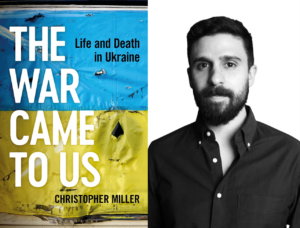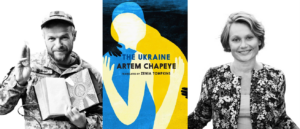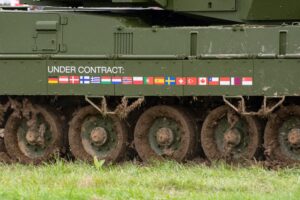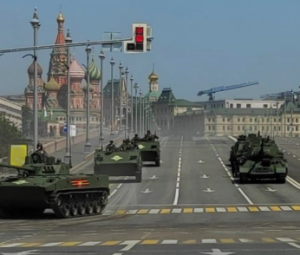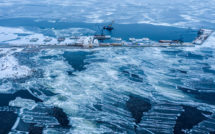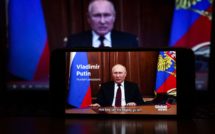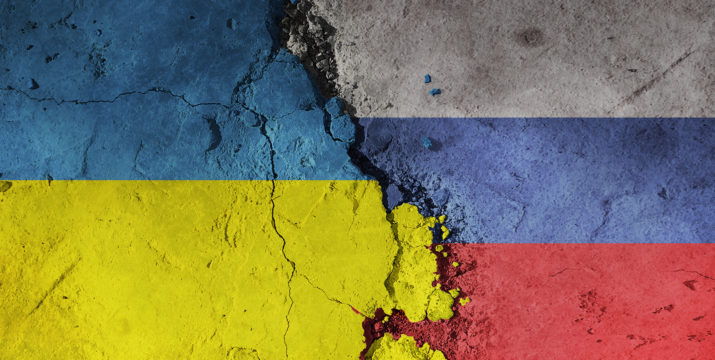
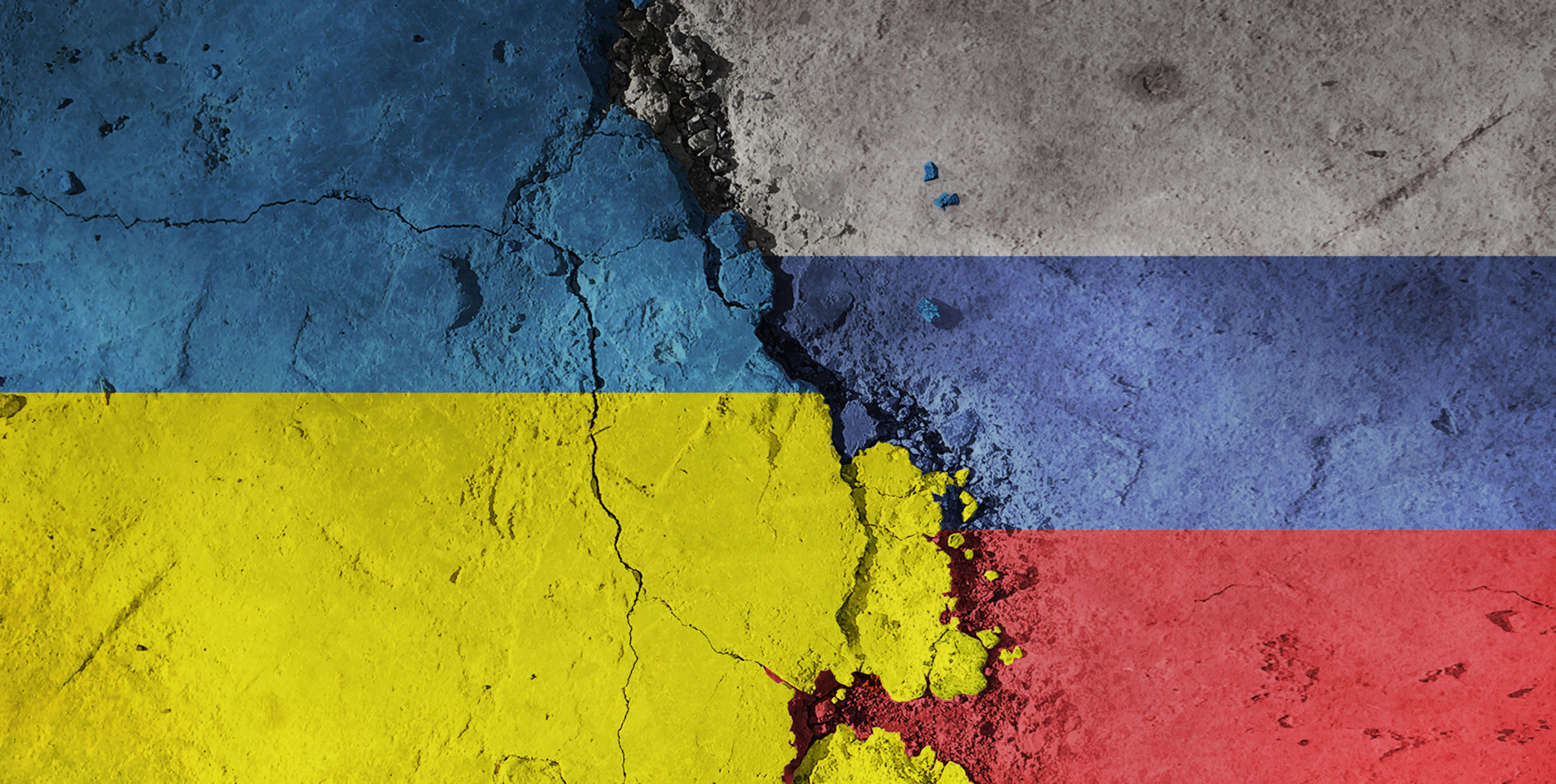
In this series, we feature a spotlight on the War in Ukraine and its connections to politics, society, and culture. This page will be updated as new pieces continue to be published. Keep scrolling for the full list of contributions.
We passed several colorful messages now scrawled across the traffic signs…“Russian soldier, stop! How will you look into your children’s eyes? Leave!”
Translated by Zenia Tompkins…
the barrel of a machine gun is aimed at your chest.
Special Feature: Europe and NATO Since Ukraine
By Carl J. Strikwerda and Ruud van Dijk
Scholars of Europe from both sides of the Atlantic assess some of the impact of the war between Ukraine and Russia on NATO, European institutions, and individual European countries.
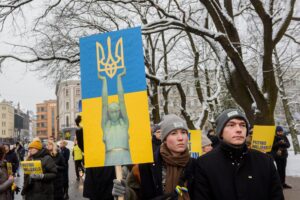 How Putin’s War in Ukraine Melted the Frozen Conflicts in the Baltic States
How Putin’s War in Ukraine Melted the Frozen Conflicts in the Baltic States
By Jordan T. Kuck
For all of modern history, the Estonians, Latvians, and Lithuanians have debated whether to ally with the powers of the East or West.

By Pierre Haroche
Europe is a castle / Where the wide plains of Asia strangle, stand its chiselled outline, its inner moat, its ocean-backed dungeons.
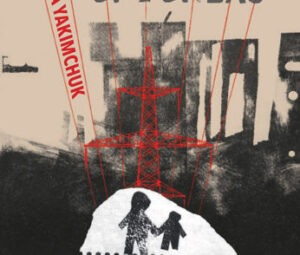 Apricots of Donbas by Lyuba Yakimchuk (translated by Oksana Maksymchuk, Max Rosochinsky, and Svetlana Lavochkina)
Apricots of Donbas by Lyuba Yakimchuk (translated by Oksana Maksymchuk, Max Rosochinsky, and Svetlana Lavochkina)
Reviewed by Elizabeth B. Jones
Yakimchuk’s voice is most moving when she probes the tedium and small indignities of war and peruses the perimeters of language to capture those absurdities before they disintegrate.
By Julia Khrebtan-Hörhager and Evgeniya Pyatovskaya
This essay illuminates how—in the words of Nietzsche—“the use and abuse of history” (and of cultural memory) in Putin’s Russia has naturally led to what Hannah Arendt so brilliantly coined The Banality of Evil.
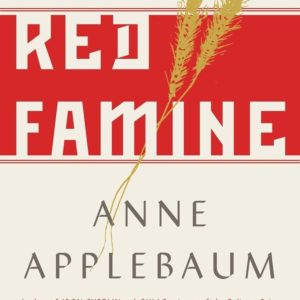 Red Famine: Stalin’s War on Ukraine by Anne Applebaum
Red Famine: Stalin’s War on Ukraine by Anne Applebaum
Reviewed by Elizabeth B. Jones
Applebaum describes the cycles of violence unleashed by Soviet authorities against Ukrainians and how lessons learned in the early 1920s were refined and amplified a decade later.
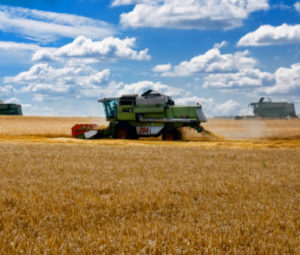 Consequences of the Russian Invasion of Ukraine as an Indicator of MENA Dysfunctional and Unequal Economic and Food System Production
Consequences of the Russian Invasion of Ukraine as an Indicator of MENA Dysfunctional and Unequal Economic and Food System Production
By Joseph Daher
Russia’s invasion of Ukraine in late February 2022 has already had a severe impact on the global economy, particularly in commodity markets, with the price for oil and gas escalating rapidly.
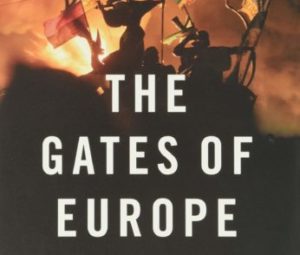
The Gates of Europe: A History of Ukraine by Serhii Plokhy
Reviewed by Elizabeth Jones
Time will tell whether recent Ukrainian victories, aided by European and North American allies, will vanquish Putin’s drive for a twentieth-first century Russian Empire and achieve Ukraine’s long-standing goals of joining the European Union and NATO.
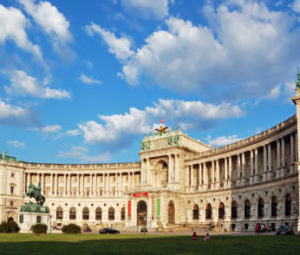 Austria at the Crossroads of History: Choosing between Comfort and Conscience during the War in Ukraine
Austria at the Crossroads of History: Choosing between Comfort and Conscience during the War in Ukraine
By Julia Khrebtan-Hörhager and Evgeniya Pyatovskaya
In early March 2022, as the situation in Ukraine continued to escalate, Austria once again expressed its resolution to adhere to its neutral status…
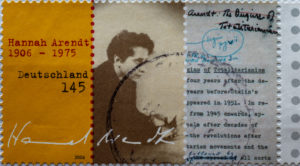
Thinking through the “Russian Problem:” Learning from Hannah Arendt and the “German Problem”
By Catherine Guisan
It is not too early, even as Russian troops impose horrific destruction and suffering on Ukrainian soldiers and civilians, to think of the future place of a post-Putin Russia in Europe.
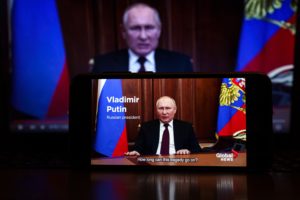
Putin and Political Theory: A Machiavellian and Pan-Slav Mindset
By Matthew Slaboch
Remembered by his compatriots as the “Russian Socrates,” Grigory Skovoroda (1722-1794) merits distinction as the founder of Russia’s autochthonous philosophical tradition.
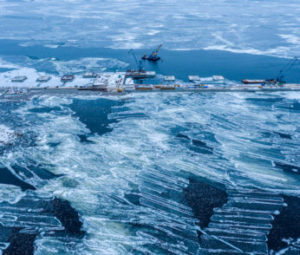
Nord Stream 2: German Soft Power and the Russian Threat to Ukraine
By Nicholas Ostrum
German Chancellor Olaf Scholz has wavered recently on the question of Nord Stream 2, the controversial Baltic gas pipeline project connecting the Russian terminal at Ust-Luga to the German port in Lubmin and, from there, Western Europe.

